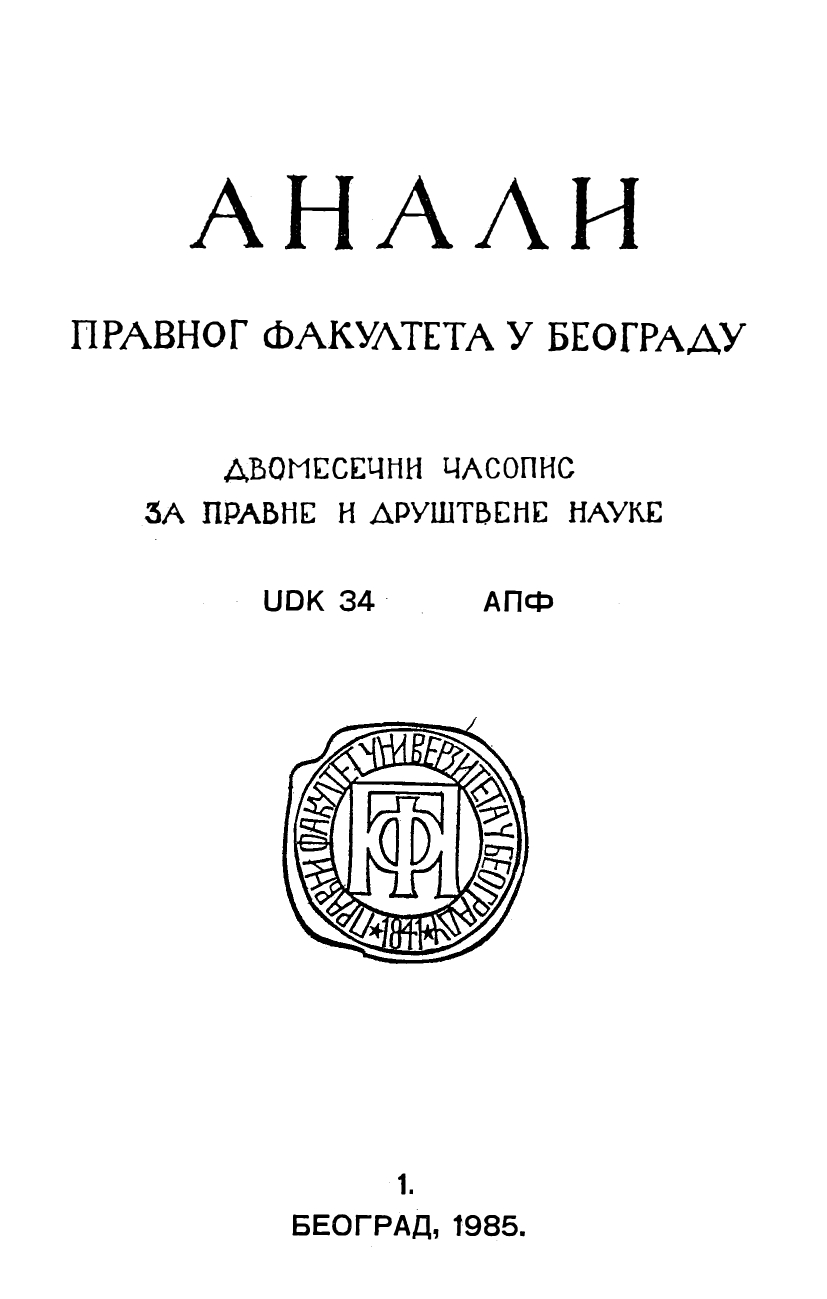РЕАЛИЗАЦИЈА СВРХЕ КРИВИЧНИХ САНКЦИЈА КРОЗ ИЗБОР ЊИХОВЕ ВРСТЕ И МЕРЕ
REALIZATION OF THE GOAL OF PENAL SANCTIONS THROUGH SELECTION OF TYPE AND MEASURE
Author(s): Dragoljub AtanackovićSubject(s): Law, Constitution, Jurisprudence, Criminal Law
Published by: Правни факултет Универзитета у Београду
Summary/Abstract: The Penal Code of the SFRY gives much attention to the goal of penal sanctions. It gives thé general goal of pénal sanctions, as well as the goals of particular kinds of penal sanctions, ordering courts, with a number of provisions, the duty to select the type and measure of penal sanctions, in accordance with its goal. Statistical facts, nevertheless, prompt out that courts, in the selection of types and measures of penal sanctions are going in directions other that the ones set in the legal acts. First of all, the courts do not apply, in a sufficient quantity all penal sanctions the law puts at their disposal. In regard to the measure of penal sanctions the courts do not apply the average the law sets. Frequently, they give out sentence under the minimum set by the law for particular crimes. Why is this so? The answer to this question lies in the general present crisis of criminal repression. The philosophy of retaliation expiation and threat is departed from. The ruling philosophy is the one of social rehabilitation and special prevention. Punishment is losing its retaliatory features, gaining new special-preventive ones instead, bringing into question the meaning of its further existence. The question is whether the time is ripe for society to abandon the general-preventive approach regarding potential delinquents, which can only be achieved by punishment. As better solution has not yet been found, it seems that, in the struggle against delinquency, society must still count on punishment. As long as punishment exists, it must have, apart from special-preventive, general-preventive effects also. In this sense, punishment represents a hybrid means within whose framework there contradict to opposite; requests. Courts are confronted .with significant dilemmas whether to measure punishment according to principles of justice or according to the needs of resocialization. What to др in the case where treatment for resocialization requires' longer prison terms than is required by the principle of justice, and the other way around, what if the principle of justice and guilt require a longer prison term than needed for resocialization? It seemed that the inauguration of security measures (similarly with educational measures) would resolve the dilemas and establish efficient social action against crime, free of retaliatory elements. It turned , out that these measures were not free of retaliatory elements, because each of them must mean the stispention or limitation of rights and liberties. Therefore, instead of contributing to the resolution of the problem — they made it even more complicated. The Yugoslav penal legislature, as well as the penal legislature of other contemporary countries, following new. trends of penal policies, are tying to reach solutions that satisfy various contradictory requests. In this, of course, the succeed only partialy. The analysis of particular provisions shows that, in regard to the applications of penal sanctions, the law passed the solution to many, problems and dilemmas, sometimes without enough clear guidelines, over to the courts, and it is therefore not strange that the legal concepts and practical solutions cannot be easily achieved and put together.
Journal: Анали Правног факултета у Београду
- Issue Year: 33/1985
- Issue No: 1
- Page Range: 71-88
- Page Count: 18
- Language: Serbian

